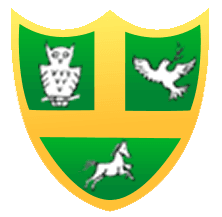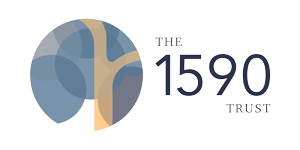RE
Article 28: Every child has the right to an education
Intent: What we are trying to achieve in our curriculum?
At Kirklevington Primary School, we promote an enquiry-based approach through the implementation of the Stockton-On-Tees Agreed Syllabus for RE. Children are encouraged to consider challenging questions. Children receive religious and ethical teaching in order to make reasoned and informed responses to religious, social and moral issues. Children are taught to develop respect for others, especially those of a different faith to others.
Characteristic |
What do we want to develop in our children at Kirklevington? |
What does this look like in our School? |
Be Ready |
Be Ambitious – aim high, exposure to experts and role models, challenge provided in teaching knowledge, skills and vocabulary |
|
|
Be Independent – Prepared for now, the next steps and for life |
|
|
Be Resilient – confident, develop self-regulation, well-being strategies and be problem solvers |
|
|
||
Be Respectful |
Respectful behaviours – towards ourselves, our peers and others |
|
|
Respect rights -RRSA – Understand our rights, how they affect our lives and rights of children globally, celebrating differences |
|
|
Respect the environment – our school, the community and the wider world |
|
|
||
Be Safe |
Keep ourselves safe – know how to report concerns and worries, including with friendships |
|
|
Being safe in the school and community – Knowledge about, our families, the school, the local context and wider world |
|
|
Being safe online –Using technology for the right reasons and knowing its limitations |
|
Implementation
Religious Education is unique in the school curriculum in that it is neither a core nor a foundation subject, however the Guidance released in 2010 views it as an important curriculum subject. It is the intent of Kirklevington Primary School that Religious Education promotes an enquiry-based approach through the implementation of the Stockton on Tees Agreed Syllabus for RE from Key Stage One and Two and can be used to contribute to the learning experiences of the early learning goals within the Foundation Stage.
Religious Education at Kirklevington Primary School develops pupils’ knowledge and understanding of the major world religions. It develops the understanding and respect for religious traditions, beliefs and values by exploring issues within faiths. Children are encouraged to consider challenging questions, such as the meaning and purpose of life and issues of right and wrong. Children receive religious and ethical teaching in order to make reasoned and informed responses to religious, social and moral issues. Children are taught to develop respect for others, especially those of a different faith to others.
Impact
Religious Education is planned on a three year rolling programme. A cycle of lessons is planned for each subject, which carefully considers progression and depth. Children are challenged to apply their learning in a philosophical manner. Trips and visiting experts enhance the learning experience.
Termly summative assessments are used to determine the children’s’ understanding and inform teacher’s planning and further differentiated support for pupils. These data are reviewed on a termly basis by the Subject Leader who also carries out learning walks, book scrutiny and lesson observations. The impact of our RE curriculum is also sought directly from the pupils as surveys and questionnaires are used to gather pupils’ voice on this subject and together with summative assessment, action can be taken to further develop the RE curriculum.

